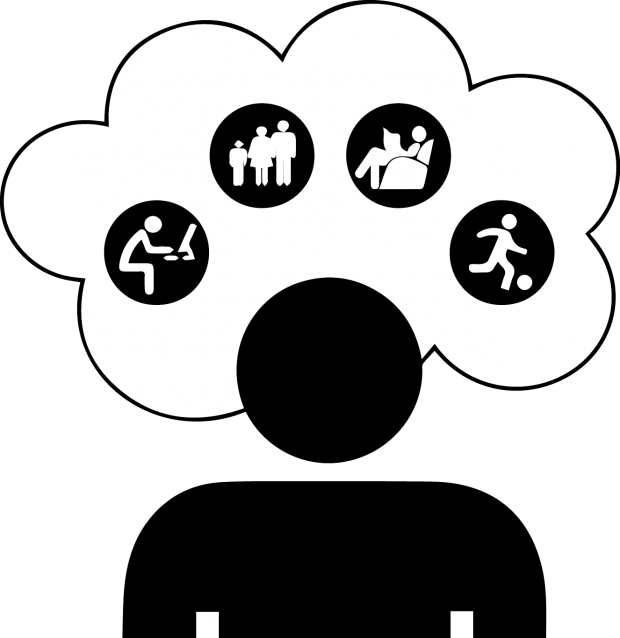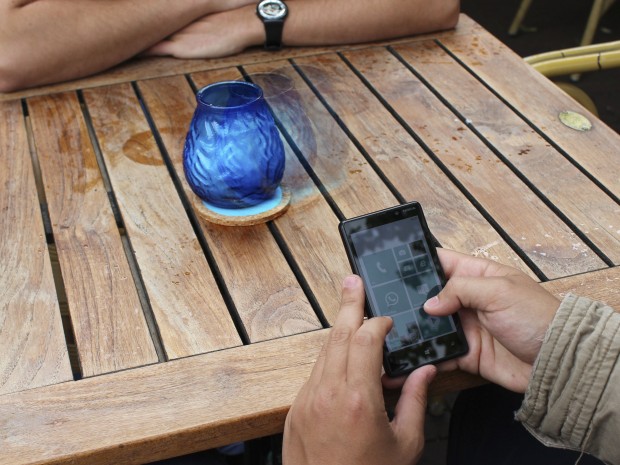The goal of this project is to develop a design intervention that supports people in achieving personal growth using the mental strategies that can constructively address conflicting life goals.
We all have multiple important goals in our lives that we actively pursue. For instance, you might aspire to have a successful career, to take good care of your family, and also find it important to maintain a healthy lifestyle, and to regularly spend time with your close friends. In this project, we call these important goals that people actively pursue ‘life goals’.
Being able to fulfill life goals greatly contributes to one’s subjective well-being. However, people have limited personal resources, such as time, energy, or behavioural repertoire, that lead to conflicts among life goals. For example, you might want to prepare a healthy dinner for your family, but you also want to relax that evening after finishing a deadline at work. Conflicts that are experienced repetitively can threaten subjective wellbeing; however, they are also useful phenomena as they produce friction necessary to grow as a person. To be able to deal with their conflicts in a constructive way – rather than getting stuck with them – people can benefit from various mental strategies such as mindfulness, reflection, or acceptance.
This project is executed in cooperation with the Trimbos Institute, a mental-health organization that aims to support in developing their mental wellbeing. Trimbos believes that mental health can be trained just like physical health, and they propose (online) advice to people on what kind of strategies they can use to achieve mental fitness. Supporting people in managing important life goals plays an important role in achieving mental fitness. By adopting a conflict perspective on multiple life goals, this graduation project will contribute to the list of mental fitness strategies proposed by Trimbos. Additionally, by creating a “designed” intervention instead of written (online) advice, this project will enhance the effectiveness of the proposed strategies by making them a part of people’s daily lives through designed products and/or services.
Outcome
Several developments in our performance-driven society - such as the growing number of people experiencing stress – indicate that people are often setting too high expectations for themselves and consequentially experience less subjective well-being. When people have multiple strivings that interfere with one another, e.g. meeting a deadline and spending time with friends, they experience conflicting life-goals. A framework has been developed summarizing the competences people need to poses to constructively deal with conflicting life-goals. An essential competence is for people to question their own (limiting) convictions.
Nowadays, people often subconsciously feel the need to always be connected and are afraid of missing out. This conviction underlies people’s urge to compulsively check their mobile-phone. When doing is in social settings, this behavior is referred to as phubbing. The design goal of this project was framed as “making people question whether they really need to be up-to-date all the time, by means of a subtle and playful confrontation that makes their phone-checking behavior look absurd.”
The AttentionSeeker is an interactive coaster that can be placed on the table in social venues such as café’s or meeting rooms. It responds to mobile-phone usage within its surroundings. A radio-frequency detector recognizes when mobile phones are being actively used and a small mechanism allows the device to move around and to grab people’s attention. This design intervention confronts people with their urge to constantly check their phone. It triggers people to more consciously consider whether they need to be checking and rethink what behavior is best for their own well-being.




